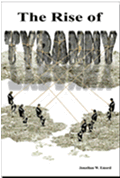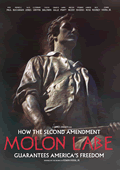Other
Emord
Articles:
Mandatory Vaccination is an
Assault on Individual Liberty
By Attorney Jonathan
Emord
Author of "The Rise of Tyranny" and
"Global Censorship of Health Information" and
"Restore The Republic"
October 19, 2015
NewsWithViews.com
In a recent deceptive advertising case brought by the FTC against ECM BioFilms, three of four FTC Commissioners (all Democrats) overruled FTC Administrative Law Judge D. Michael Chappell’s decision that ECM’s plastic additive did indeed cause conventional plastics to become intrinsically biodegradable and that ECM’s “biodegradable” claim was thus truthful. In so doing, the full Federal Trade Commission rejected the overwhelming weight of scientific evidence presented and adopted a new and unworkable national environmental rule, a rule that casts a pall of censorship over biodegradable claims and virtually ensures that pollutants in the form of biodegradation resistant conventional plastics will become far more common around the world. The new FTC rule is a prior restraint on speech that effectively bans the term “biodegradable” from the market. Far from protecting the public from deception, the new FTC rule creates a perverse economic disincentive to sell biodegradable products and exacerbates the problem of plastics pollution.
Under FTC’s new rule, marketers are forbidden from claiming a product to be biodegradable unless that product completely breaks down into elements in nature within five years after customary disposal. The problem with this rule is that virtually nothing (not even a banana, an orange, a piece of wood, or a piece of paper) reliably breaks down into elements in nature within five years after disposal. Indeed, no material will biodegrade into elements, it will break down into compounds (e.g., water, carbon dioxide or methane). Moreover, none can do so predictably within five years, because natural environments vary in ways that affect biodegradation (such as whether the ambient temperatures are hot or cold, whether biodegrading biota are present, whether the product ultimately rests in a part of a landfill that is arid or moist, and whether the ambient environment is hospitable to microbial life). Those variable conditions make a biodegradable definition based on a fixed year demarcation unscientific, unrealistic, and nonsensical. Yet that rule the FTC has made the law of the land.
The overwhelming weight of the scientific record credited by the ALJ confirmed the essential point that environmental variability affects the rate of biodegradation, such that no one on earth can reliably predict when a particular thing will completely break down before it is discarded. The scientists who testified agreed to a man, that the rate of biodegradation is thus not the definition of the term. Even FTC’s lead scientific witness, Dr. Stephen McCarthy, who awkwardly clung to that definition in deference to FTC attorneys admitted on cross examination that it was unsupported in the scientific literature and unworkable, actually asking his cross-examiner if he might rely on a different rule than the fixed year rule he recited in his report.
In determining whether something is “biodegradable,” scientists evaluate gas evolution tests that aim at ascertaining whether a substance is intrinsically biodegradable (i.e., whether its composition is such that when exposed to biota commonly found in waste, it degrades). The ALJ got this, understood it well, and ruled against his own agency’s charge of deception as a result. Based on a voluminous record of tests, peer reviewed literature, and expert testimony, the ALJ again and again found that the ECM additive biodegraded plastics. Consider the following excerpts from his decision:
“The ECM Additive helps to set in motion the attraction/migration of microbes and biological agents to the plastic, and to the areas of the plastic where weaknesses or hydrophilic defects exist.”
“Inclusion of the ECM Additive, a biodegradable substance and attractant for microbial growth, contributes to an acceleration of biodegradation.”
“Peer-reviewed literature supports Dr. Sahu’s opinion that the ECM Additive contributes to an acceleration of biodegradation.”
“Based on his statistical analyses and the test data he reviewed concerning ECM Plastics, Dr. Barlaz testified that competent and reliable scientific evidence exists to show that plastics manufactured with the ECM Additive are anaerobically biodegradable.”
“Based on his statistical analyses and test data he reviewed concerning ECM Plastics and based on his review of the procedures used by the labs conducting the ASTM D5511 tests, Dr. Barlaz credibly and persuasively testified that [ECM’s] testing constitutes competent and reliable scientific evidence demonstrating that plastics manufactured with the ECM Additive are anaerobically biodegradable.”
“Dr. Barlaz persuasively and credibly testified that competent and reliable scientific evidence shows that plastics manufactured with the ECM Additive are anaerobically biodegradable.”
In short, the ECM additive is an incredible invention. Rather than celebrate that invention, the FTC has condemned it. Its decision is the equivalent of a corporate death sentence. If upheld on appeal, its censorship will drive ECM into bankruptcy and destroy the biodegradable plastics market.
Ordinarily, FTC abuses of power go without notice under a public interest veneer of consumer protection, but this time everyone in the country will sooner or later feel the effects of FTC’s decision. We are going to be up to our eyeballs in more plastic refuse than ever before, and when we are, you need look no further than to the FTC to pin the blame.
Why did the FTC do this? It appears that the Commissioners are not willing to recognize that a prior FTC action, taken without lawfully required notice and comment rulemaking, was a terrible mistake. They are dogmatically defending their previously issued “Green Guides” that made the same kind of fixed year demarcation for use of the term biodegradation that is at issue now, there refusing to allow any claim of biodegradation for a product that did not completely break down into elements within one year. This point was seized upon by the only Republican remaining on the Commission. In her dissent to the ECM decision, Commissioner Maureen K. Ohlhausen opined, “rather than reinforce consumer ignorance by setting an arbitrary, unjustifiable five-year threshold . . . we should start a proceeding to revise the Green Guides . . .”
Side stepping the one year rule and adopting a five year rule instead, the Commission has walked into the same intellectual quagmire that made its one year rule so indefensible and absurd. Consider the following. Under the arbitrary fixed time rule just adopted by the FTC, if a product were to break down completely after 5 years and one minute, it would be illegal to claim it “biodegradable” simply because it did not do so a minute before. The proposition is so absurd that it galls legitimate scientists who have devoted a lifetime to the study of biodegradability.
Full disclosure is warranted. I represent ECM BioFilms and defended their interests against the FTC in this case. My view of the science explained here, however, is not simply one lawyer’s opinion, it is shared by most all of the experts in the case and by the trial judge, the ALJ, who is the only official who assessed the demeanor of the witnesses. Every expert in the case agreed with ECM on a fundamental point: that plastics manufactured using ECM technology are deemed intrinsically biodegradable based on gas evolution testing and that a finding of whether a substance is biodegradable is not dependent upon whether it vanishes in a year or a thousand years. The point is, if intrinsically biodegradable, a substance will continue degrading until it disappears so long as biota are present and active to biodegrade it. That is true of a banana peel, and it is equally true of a conventional plastic infused with ECM’s additive.
If you place a piece of wood in a hermetically sealed container free of biota, it will remain there virtually forever. If, however, you put that piece of wood in the ground, it will eventually rot, but when it breaks down into essential compounds and elements varies enormously depending on the ambient environmental conditions present (which even vary within landfill sites form one spot to another). Consequently, it is impossible to predict whether anything will break down into elements in nature within a fixed time period. Impossible. And therein lies the First Amendment rub for the FTC.
That is why this FTC decision is so arbitrary and so brazenly unconstitutional. By making the standard of proof for biodegradation impossible to meet, the FTC has enacted a blanket speech ban in violation of the First Amendment. The decision offends science, for sure; it is rightly deemed unscientific, but it also violates the First Amendment, because it is entirely unworkable. It not only forbids speech that is literally true, it insists upon a standard that is impossible to satisfy and not generally accepted in the scientific community.
The FTC decision also establishes a perverse environmental policy against that commanded by the Environmental Protection Act. It does so, in part, by removing the financial incentive for companies to make products that are biodegradable. Not able to lawfully communicate that a product is biodegradable due to FTC’s speech ban, companies have no incentive to pay more for rendering conventional plastics biodegradable. As a result, many, most, or all will choose conventional plastics over more expensive biodegradable ones.
Wait a minute, you say. I thought that the EPA is given exclusive statutory authority to make national environmental policy. In that you would be right. Indeed, FTC has exceeded the limits of its statutory authority, and what a bad bit of anti-environmental policy it has created.
By depriving the public of material information concerning the biodegradability of products, the FTC deceives us all and removes from industry the very incentive it needs to favor production of green friendly products over non-green ones. FTC has imposed a regime of censorship that will perpetually deny manufacturers and consumers information indispensable to improving the environment.
|
|
When you next look at the contents of your trash dumpster, recognize this: The FTC has created an economic incentive for companies to abandon biodegradable plastics, meaning that the contents of your dumpster may well include a lot more untreated conventional plastic that will effectively remain in the environment for an indefinite period.
ECM will appeal this decision, so hope remains for common sense and the First Amendment to reassert themselves. Until then, however, this arbitrary FTC rule remains the law of the land.
Click here to visit NewsWithViews.com home page.
© 2015 Jonathan W. Emord - All Rights Reserved
Jonathan W. Emord is an attorney who practices constitutional and administrative law before the federal courts and agencies. Ron Paul calls Jonathan “a hero of the health freedom revolution” and says “all freedom-loving Americans are in [his] debt . . . for his courtroom [victories] on behalf of health freedom.” He has defeated the FDA in federal court a remarkable eight times, seven on First Amendment grounds, and is the author of the Amazon bestsellers The Rise of Tyranny, Global Censorship of Health Information, and Restore the Republic. He is the American Justice columnist for U.S.A. Today Magazine and joins Robert Scott Bell weekly for “Jonathan Emord’s Sacred Fire of Liberty,” an hour long radio program on government threats to individual liberty. For more info visit Emord.com, join the Emord FDA/FTC Law Group on Linkedin, and follow Jonathan on twitter (@jonathanwemord).
Website: Emord.com
E-Mail: jemord@emord.com
By depriving the public of material information concerning the biodegradability of products, the FTC deceives us all and removes from industry the very incentive it needs to favor production of green friendly products over non-green ones.






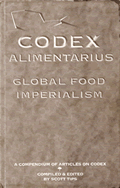
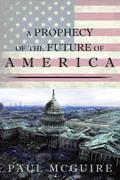
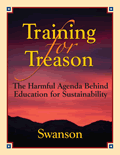






 Share This Article
Share This Article
